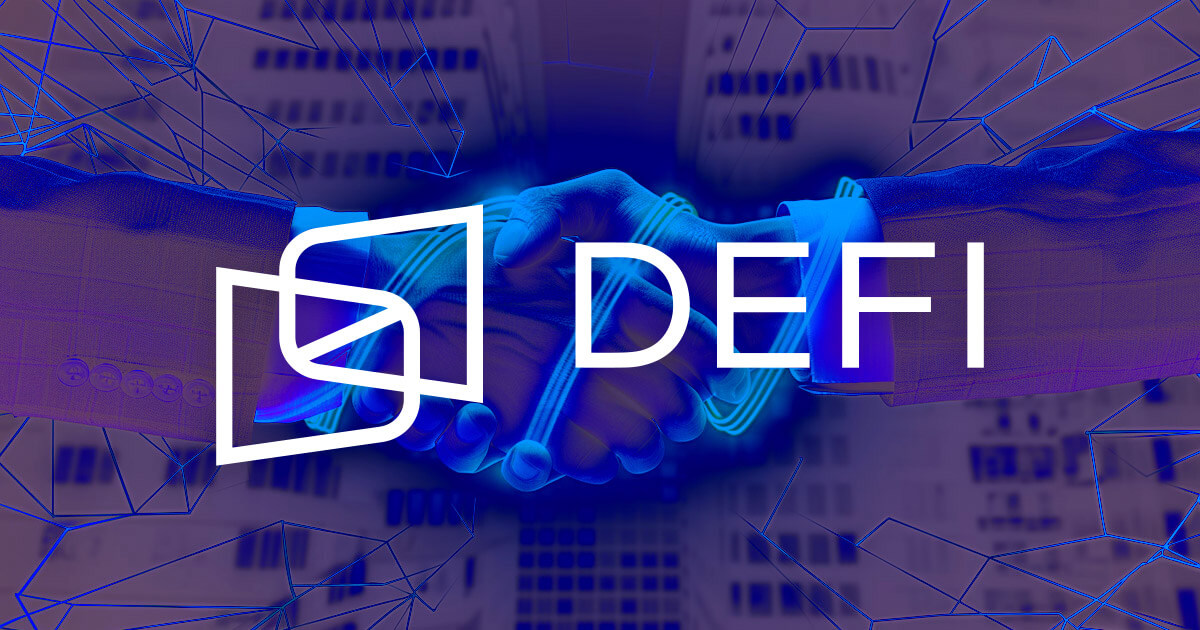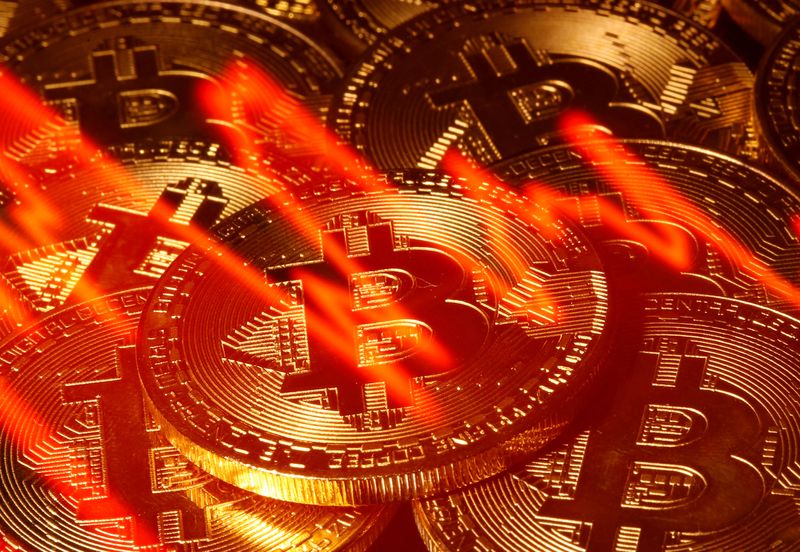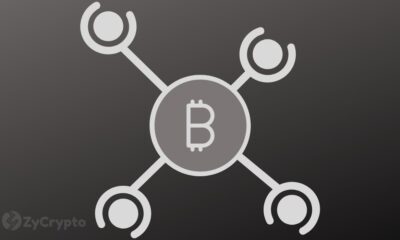DeFi
Understanding Smart Contracts: The Backbone of Secure Transactions in DeFi

Imagine a world where promises are kept and honored, where financial products are transparent and democratized, all without any intermediaries. This transformation is underway and is taking a leading position in the financial landscape with decentralized finance (DeFi). At the heart of this transformation are smart contracts self-executing, tamper-proof agreements that automate complex transactions. These advancements are crucial for the DeFi ecosystem, promising a future where financial transactions are more secure, accessible, and transparent. Smart contracts are based on blockchain Networks, especially public and permissionless networks like Ethereum. Understanding cryptography is essential for the foundational technology that it is. What are smart contracts?
Smart contracts are self-executing contracts coded in software. They automatically apply and execute when predetermined conditions are met, eliminating intermediaries. This reduces costs and minimizes the risk of human error and fraud. Introduced by cryptographer Nick Szabo in the 1990s, smart contracts have become an integral part of blockchain platforms like Ethereum.
These contracts operate on an “if-then” logic. For example, if a buyer sends the required quantity of cryptocurrency To the seller, the smart contract automatically transfers ownership of the digital asset. This process is transparent, immutable, and permissionless, meaning it cannot be changed once deployed. They enable atomic settlements (ensuring that transactions are fully completed or not at all) and composability, allowing different DeFi protocols to seamlessly interact. Imagine this entire process applied to every financial asset class, where it’s not just crypto, but tokenized representations of underlying assets.
Smart contracts can streamline settlements and payments, reducing the time and costs associated with these transactions by eliminating intermediaries. They enable tokenization and the fragmentation of assets, transforming them into digital tokens that can be easily traded and held in smaller units, enabling broader participation and increased liquidity. They can also transform complex financial products such as derivatives and structured products, which currently involve significant counterparty risk and require extensive oversight. By automating these processes, smart contracts improve efficiency, transparency and security, paving the way for a more resilient and accessible financial ecosystem.
Applications in DeFi
DeFi leverages smart contracts to create decentralized financial services that are accessible to anyone with an internet connection. These applications range from payment networks and lending platforms to decentralized exchanges, automated market makers, and structured financial products.
Decentralized Exchanges (DEX)
- Traditional stock exchanges like the NYSE or NSE operate with brokers and clearing houses that connect buyers and sellers. Transactions often take several days to settle and involve multiple intermediaries.
- DeFi platforms like Uniswap use smart contracts to allow users to swap tokens directly from their wallets. These platforms provide liquidity pools where users can contribute assets and earn fees on trades. This further eliminates the middleman, making trades faster and more cost-effective. Atomic settlements ensure that trades are either fully completed or not completed at all, eliminating the risk of partial execution and increasing security.
Regulation of securities
- Settling securities transactions in traditional financial systems (TradFi) involves a complex process involving brokers, clearing houses, and custodians. This process can take several days and has multiple points of failure and risks of error or fraud.
- Smart contracts automate and accelerate the settlement process, ensuring near-instant settlement once conditions are met. This reduces the time and costs involved while increasing transparency and security. Composability allows different DeFi protocols to interact and build on each other, making it possible to efficiently create complex financial structures and products. For example, users can leverage assets from one protocol to obtain liquidity in another, all managed seamlessly via smart contracts.
Digital Asset Structured Products
- TradFi structured products such as hedge funds, algorithmic funds or index ETFs are managed by financial institutions and require significant oversight, management fees and regulatory compliance. These products often lack transparency, leading to inefficiencies and higher costs.
- In DeFi, structured products can be created using smart contracts, allowing users to create and invest in complex financial products without an intermediary. These products are fully transparent, with all transactions and holdings visible on the blockchain. Smart contracts manage the entire lifecycle of these products, from asset creation and management to yield distribution. Most importantly, they are permissionless, meaning users can deposit and trade at will without introducing counterparty risk. This automation reduces costs, improves transparency, and enables the creation of more innovative financial products.
Security and custody
Smart contracts offer significant benefits in terms of security and self-custody of financial transactions. Unlike traditional financial systems that rely on intermediaries, which can be points of failure, smart contracts allow users to maintain control over their assets. Transactions are executed automatically and transparently, reducing the risk of fraud.
Additionally, smart contracts are designed to be tamper-proof. Once deployed, they operate exactly as programmed, with no possibility of third-party interference. This ensures that contractual obligations are met without requiring trust between the parties.
However, despite their potential, smart contracts are not without challenges. One of the major risks is the possibility of bugs or vulnerabilities in the code. These flaws can be exploited by malicious actors, leading to substantial financial losses. For example, in the Poly Network hack in 2021, an attacker exploited a vulnerability in the smart contract code, resulting in the theft of over $600 million. These risks can be mitigated by conducting comprehensive security audits of the smart contract code and implementing several interventions to reduce single points of failure.
Smart Contracts and the Future of Finance
Improving the next generation of DeFi relies on two key areas: interoperability between blockchains and the integration of artificial intelligence (AI). Better interoperability will allow DeFi protocols to interact seamlessly, increasing the scalability and ease of use of DeFi platforms. This will attract more users and capital, facilitating the creation of more complex financial products. As interoperability increases, smart contracts will execute transactions and operations across multiple blockchains, fostering a more connected financial ecosystem.
AI can significantly improve smart contracts by enabling more sophisticated decision-making and predictive analytics. AI could assess borrowers’ creditworthiness in real time, enabling more accurate lending decisions. Additionally, AI can help create tokenized structured products that combine predictive analytics with autonomous smart contract execution, resulting in innovative financial solutions.
Smart contracts are essential to the security and automation of transactions in DeFi. Their ability to enforce agreements in a transparent and immutable manner offers a compelling alternative to traditional financial systems. Despite the challenges, the continued development and integration of smart contracts, coupled with advances in AI and interoperability, will advance the DeFi ecosystem, paving the way for a safer and more inclusive financial future.
(The author Srikumar Misra is the founder of the Aarnâ Protocol. The views expressed are his own)
(Disclaimer:The recommendations, suggestions, views and opinions expressed by the experts are their own. They do not represent the views of the Economic Times)
(You can now subscribe to our ETMarkets WhatsApp Channel)
(Disclaimer: The opinions expressed in this column are those of the author. The facts and opinions expressed herein do not reflect the views of www.economictimes.com.)
Fuente
DeFi
Pump.Fun is revolutionizing the Ethereum blockchain in terms of daily revenue

The memecoin launchpad saw the largest daily revenue in all of DeFi over the past 24 hours.
Memecoin launchpad Pump.Fun has recorded the highest gross revenue in all of decentralized finance (DeFi) in the last 24 hours, surpassing even Ethereum.
The platform has raised $867,429 in the past 24 hours, compared to $844,276 for Ethereum, according to DeFiLlama. Solana-based Telegram trading bot Trojan was the third-highest revenue generator of the day, as memecoin infrastructure continues to dominate in DeFi.
Pump.Fun generates $315 million in annualized revenue according to DeFiLlama, and has averaged $906,160 per day over the past week.
Income Ranking – Source: DeFiLlama
The memecoin frenzy of the past few months is behind Pump.fun’s dominance. Solana-based memecoins have been the main drug of choice for on-chain degenerates.
The app allows non-technical users to launch their own tokens in minutes. Users can spend as little as $2 to launch their token and are not required to provide liquidity up front. Pump.Fun allows new tokens to trade along a bonding curve until they reach a set market cap of around $75,000, after which the bonding curve will then be burned on Raydium to create a safe liquidity pool.
Pump.Fun generates revenue through accrued fees. The platform charges a 1% fee on transactions that take place on the platform. Once a token is bonded and burned on Raydium, Pump.fun is no longer able to charge the 1% fee.
Ethereum is the blockchain of the second-largest cryptocurrency, Ether, with a market cap of $395 billion. It powers hundreds of applications and thousands of digital assets, and backs over $60 billion in value in smart contracts.
Ethereum generates revenue when users pay fees, called gas and denominated in ETH, to execute transactions and smart contracts.
DeFi
DeFi technologies will improve trading desk with zero-knowledge proofs

DeFi Technologies, a Canadian company financial technology companyis set to enhance its trading infrastructure through a new partnership with Zero Computing, according to a July 30 statement shared with CryptoSlate.
The collaboration aims to integrate zero-knowledge proof tools to boost operations on the Solana And Ethereum blockchains by optimizing its ability to identify and execute arbitrage opportunities.
Additionally, it will improve the performance of its DeFi Alpha trading desk by enhancing its use of ZK-enabled maximum extractable value (MEV Strategies).
Zero knowledge Proof of concept (ZKP) technology provides an additional layer of encryption to ensure transaction confidentiality and has recently been widely adopted in cryptographic applications.
Optimization of trading strategies
DeFi Technologies plans to use these tools to refine DeFi Alpha’s ability to spot low-risk arbitrage opportunities. The trading desk has already generated nearly $100 million in revenue this year, and this new partnership is expected to further enhance its algorithmic strategies and market analysis capabilities.
Zero Computing technology will integrate ZKP’s advanced features into DeFi Alpha’s infrastructure. This upgrade will streamline trading processes, improve transaction privacy, and increase operational efficiency.
According to DeFi Technologies, these improvements will increase the security and sophistication of DeFi Alpha’s trading strategies.
The collaboration will also advance commercial approaches for ZK-enabled MEVs, a new concept in Motor vehicles which focuses on maximizing value through transaction fees and arbitrage opportunities within block production.
Additionally, DeFi Technologies plans to leverage Zero Computing technology to develop new financial products, such as zero-knowledge index exchange-traded products (ETPs).
Olivier Roussy Newton, CEO of DeFi Technologies, said:
“By integrating their cutting-edge zero-knowledge technology, we not only improve the efficiency and privacy of our transactions, but we also pave the way for innovative trading strategies.”
Extending Verifiable Computing to Solana
According to the release, Zero Computing has created a versatile, chain-agnostic platform for generating zero-knowledge proofs. The platform currently supports Ethereum and Solana, and the company plans to expand compatibility with other blockchains in the future.
The company added that it is at the forefront of introducing verifiable computation to the Solana blockchain, enabling complex computations to be executed off-chain with on-chain verification. This development represents a significant step in the expansion of ZKPs across various blockchain ecosystems.
Mentioned in this article
Latest Alpha Market Report
DeFi
Elastos’ BeL2 Secures Starknet Grant to Advance Native Bitcoin Lending and DeFi Solutions

Singapore, Asia, July 29, 2024, Chainwire
- Elastos BeL2 to Partner with StarkWare to Integrate Starknet’s ZKPs and Cairo Programming Language with BeL2 for Native DeFi Applications
- Starknet integration allows BeL2 to provide smart contracts and dapps without moving Bitcoin assets off the mainnet
- Starknet Exchange Validates the Strength of BeL2’s Innovation and Leadership in the Native Bitcoin Ecosystem
Elastos BeL2 (Bitcoin Elastos Layer2) has secured a $25,000 grant from Starknet, a technology leader in the field of zero-knowledge proofs (ZKPs). This significant approval highlights the Elastos BeL2 infrastructure and its critical role in advancing Bitcoin-native DeFi, particularly Bitcoin-native lending. By integrating Starknet’s ZKPs and the Cairo programming language, Elastos’ BeL2 will enhance its ability to deliver smart contracts and decentralized applications (dapps) without moving Bitcoin (BTC) assets off the mainnet. This strategic partnership with Starknet demonstrates the growing acceptance and maturity of the BeL2 infrastructure, reinforcing Elastos’ commitment to market leadership in the evolving Bitcoin DeFi market.
Starknet, developed by StarkWare, is known for its advancements in ZKP technology, which improves the privacy and security of blockchain transactions. ZKPs allow one party to prove to another that a statement is true without revealing any information beyond the validity of the statement itself. This technology is fundamental to the evolution of blockchain networks, which will improve BeL2’s ability to integrate complex smart contracts while preserving the integrity and security of Bitcoin.
“We are thrilled to receive this grant from Starknet and announce our partnership to build tighter integrations with its ZKP technology and the Cairo programming language,” said Sasha Mitchell, Head of Bitcoin Layer 2 at Elastos. “This is a major milestone for BeL2 and a true recognition of the maturity and capabilities of our core technology. This support will allow us to further develop our innovation in native Bitcoin lending as we look to capitalize on the growing acceptance of Bitcoin as a viable alternative financial system.”
A closer integration with Cairo will allow BeL2 to leverage this powerful programming language to enhance Bitcoin’s capabilities and deliver secure, efficient, and scalable decentralized finance (DeFi) applications. Specifically, the relationship with Cairo reinforces BeL2’s core technical innovations, including:
- ZKPs ensure secure and private verification of transactions
- Decentralized Arbitrage Using Collateralized Nodes to Supervise and Enforce Fairness in Native Bitcoin DeFi
- BTC Oracle (NYSE:) facilitates cross-chain interactions where information, not assets, is exchanged while Bitcoin remains on the main infrastructure
BeL2’s vision goes beyond technical innovation and aims to innovate by creating a new financial system. The goal is to build a Bitcoin-backed Bretton Woods system, address global debt crises, and strengthen Bitcoin’s role as a global hard currency. This new system will be anchored in the integrity and security of Bitcoin, providing a stable foundation for decentralized financial applications.
As integration with Starknet and the Cairo programming language continues, BeL2 will deliver further advancements in smart contract capabilities, decentralized arbitration, and innovative financial products. At Token 2049, BeL2 will showcase further innovations in its core technologies, including arbitrators, that will underscore Elastos’ vision for a fairer decentralized financial system rooted in Bitcoin.
About Elastos
Elastos is a public blockchain project that integrates blockchain technology with a suite of redesigned platform components to produce a modern Internet infrastructure that provides intrinsic privacy and ownership protection for digital assets. The mission is to create open source services that are accessible to the world, so developers can create an Internet where individuals own and control their data.
The Elastos SmartWeb platform enables organizations to recalibrate how the Internet operates to better control their own data.
https://www.linkedin.com/company/elastosinfo/
ContactPublic Relations ManagerRoger DarashahElastosroger.darashah@elastoselavation.org
DeFi
Compound Agrees to Distribute 30% of Reserves to COMP Shareholders to End Alleged Attack on Its Governance

Compound will introduce the staking program in exchange for Humpy, a notorious whale accused of launching a governance attack on the protocol, negating a recently adopted governance proposal.
Compound is launching a new staking program for COMP holders as a compromise with Humpy, a notorious DeFi whale accused of launching a governance attack against the veteran DeFi protocol.
On July 29, Bryan Colligan, head of business development at Compound, published a governance proposal outlining plans for a new compound participation product that would pay 30% of the project’s current and future reserves to COMP participants.
Colligan noted that the program was requested by Humpy in exchange for his agreement Proposition 289 — which sought to invest 499,000 COMP worth approximately $24 million into a DeFi vault controlled by Humpy, and which appears to have been forced by Humpy and his associates over the weekend.
“We propose the following staking product that meets Humpy’s stated interests as a recent new delegate and holder of COMP in exchange for the repeal of Proposition 289 due to the governance risks it poses to the protocol,” Colligan said. “The Compound Growth Program…will execute the above commitments, given the immediate repeal of Proposition 289.”
Colligan added that the proposal would expire at 11:59 p.m. EST on July 29. Had Humpy not rescinded Proposition 289, Compound would move forward with it. Proposition 290 — block Humpy using the Compound team’s multi-sig to deploy a new governor contract removing the delegate’s governance power behind Proposition 289.
Hunchback tweeted that Proposition 289 had been repealed a few hours ago. “Glad to have brought Compound Finance back into the spotlight,” they said. added. “StakedComp… finally becomes a yield-generating asset!
Markets reacted favorably to the resolution, with the price of COMP increasing by 6.2% over the past 24 hours, according to CoinGecko.
Attack on governance
Proposition 289 proposed investing 499,000 COMP from the Compound treasury into goldCOMP, a yield-generating vault of the Humpy-linked Golden Boys team.
The proposal passed with nearly 52 percent of the vote on July 28, despite two previous iterations of the proposal being defeated by strong opposition. Can And JulyThe proposals notably asked for only 92,000 COMP, with security researchers warning that any deposit of tokens into the goldCOMP vault would cede their governance power.
In May, Michael Lewellen of Web3 security firm OpenZeppelin, note The first proposal was submitted by a new governance delegate who was suddenly awarded 228,000 COMP by five wallets that got their tokens from the Bybit exchange. Combined with his own tokens, the delegate got 325,333 COMP, which is over 81% of the 400,000 tokens required for a governance proposal to reach quorum.
“We have been alerting the community to the risk that these delegates could support a potential attack on governance,” Lewellen said. “The timing of the new proposal and these recent delegations are suspect.”
Read more: Compound community accuses famous whale of attacking engineering governance
-

 News11 months ago
News11 months agoVolta Finance Limited – Director/PDMR Shareholding
-

 News11 months ago
News11 months agoModiv Industrial to release Q2 2024 financial results on August 6
-

 News11 months ago
News11 months agoApple to report third-quarter earnings as Wall Street eyes China sales
-

 News11 months ago
News11 months agoNumber of Americans filing for unemployment benefits hits highest level in a year
-

 News1 year ago
News1 year agoInventiva reports 2024 First Quarter Financial Information¹ and provides a corporate update
-

 News1 year ago
News1 year agoLeeds hospitals trust says finances are “critical” amid £110m deficit
-

 DeFi1 year ago
DeFi1 year ago🏴☠️ Pump.Fun operated by Insider Exploit
-

 Tech1 year ago
Tech1 year agoBitcoin’s Correlation With Tech Stocks Is At Its Highest Since August 2023: Bloomberg ⋆ ZyCrypto
-

 Tech1 year ago
Tech1 year agoEverything you need to know
-

 Markets1 year ago
Markets1 year ago20 Top Crypto Trading Platforms to Know
-

 News11 months ago
News11 months agoStocks wobble as Fed delivers and Meta bounces
-

 Markets1 year ago
Markets1 year agoWhale Investments in Bitcoin Hit $100 Billion in 2024, Fueling Insane Investor Optimism ⋆ ZyCrypto












